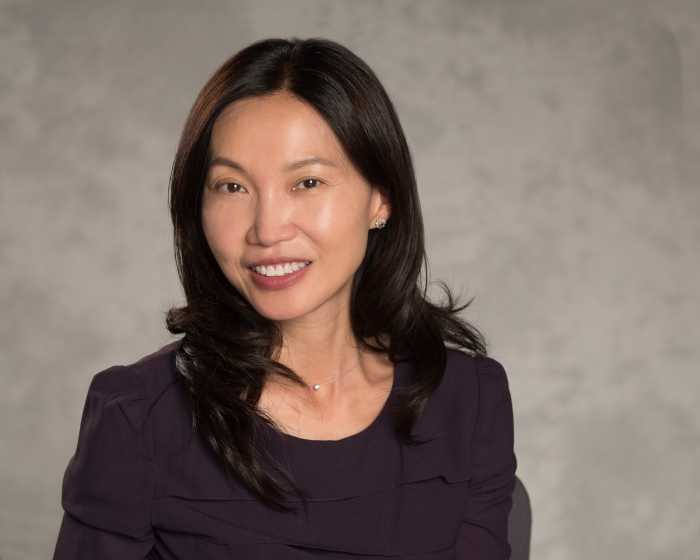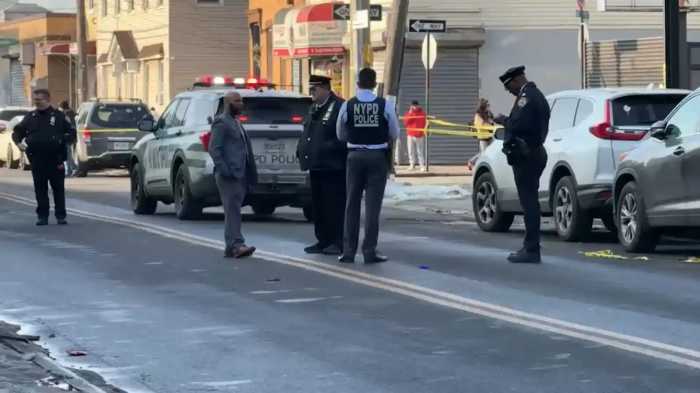Haeyoung Yoon is senior policy director at the National Domestic Workers Alliance. She has extensive experience working on public policy issues related to the labor market, low-wage workers, and the care economy. Haeyoung served on the Biden-Harris COVID-19 health equity task force and chaired the subcommittee on structural drivers and xenophobia. She has also testified in Congress. She co-directed the New York University Immigrant Rights Clinic and taught at the Brooklyn Law School.
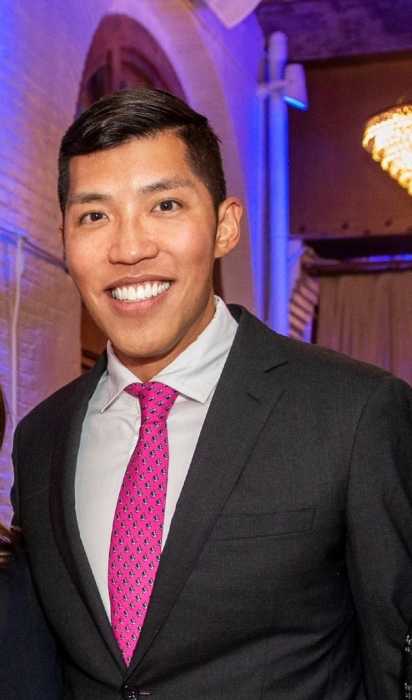
Alan Yu
Executive Director, New Yorkers For Children

Alan Yu has worked his entire career in NYC’s nonprofit sector. He received his Master of City Planning from the University of Pennsylvania and his bachelor’s with high honors in urban studies from the University of California, Berkeley. He also serves on the Advisory Committee of Episcopal Charities of New York, the Congregational Council of Trinity Church Wall Street, Manhattan Community Board 5, and the Young Patrons Steering Committee of the Museum of Modern Art.
Do you have any event/movie/music suggestions for our readers to check out in celebration of AAPI Heritage Month?
I highly recommend the book “Taipei People” by Pai Hsien-yung.
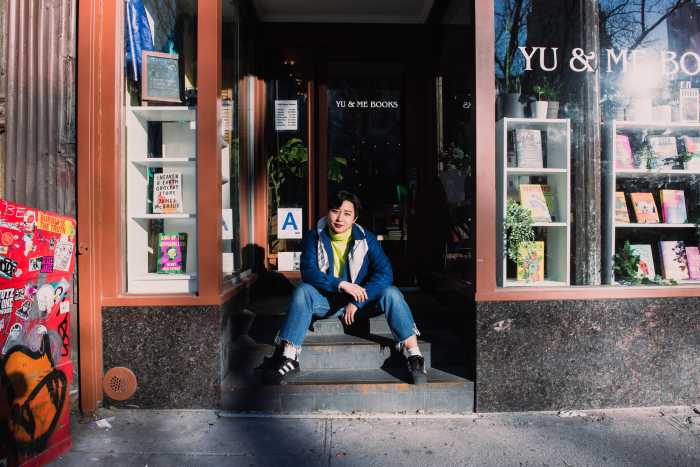
Lucy Yu
Owner, Yu and Me Books

Lucy Yu is the owner of Yu & Me Books, the first female-owned Asian American bookstore, bar, and cafe in NYC. Yu & Me books is in Chinatown and has been at the forefront of promoting AAPI, immigrant, and writers of color stories where these stories are promoted and encouraged. Her background is in chemical engineering and supply chain and logistics.
If you could give your younger-self advice, what would it be?
Understand that the high standards that I set for myself are important for pushing myself out of my bounds of comfort, but don’t let it destroy me when I don’t achieve the maximum of every standard. Learn ways to be proud of myself and spend less time being hard on myself. Stay true to who I am and leave plenty of room for growth because I will continue to surprise myself.
Do you have any event/movie/music suggestions for our readers to check out in celebration of AAPI Heritage Month?
I always joke that I’m Asian in May but also every other month of the year! We always have a ton of events at Yu & Me Books. Books: “Cinema Love” by Jiaming Tang, “Memory Piece” by Lisa Ko, “Sightseeing” by Rattawut Lapcharoensap. Movies: “Spacked Out,” “Departures,” “Polite Society,” “Return to Seoul,” “Millenium Mambo,” “Tampopo,” “In the Mood for Love,” and “Monster.” Music: Ichiko Aoba, No No Boy, Arthur Lyman, Hyunkoh, Phum Viphurit.
How has your heritage shaped the person you are today?
It’s impossible that my heritage is not part of everything that I do but I always refer back to this quote from “My Big Fat Greek Wedding,” “Don’t let your past dictate who you are, but let it be part of who you will become.” Being the daughter of a Chinese single mother has led me to believe that I can accomplish anything but I can also choose what I want to accomplish.
What can New York policymakers do to support the AAPI-community in the short-term? In the long-term?
The activation energy to start your own business is so high especially as a woman of color fighting in a system that isn’t built for you. Short term support means offering more accessible grants and multilingual community resources (for permits, LLC creation, taxes, etc.) to help those wanting to start their own businesses. Long term is developing policies on the side of small businesses to navigate rising rent costs, fires, other natural disasters, and preventing displacement.
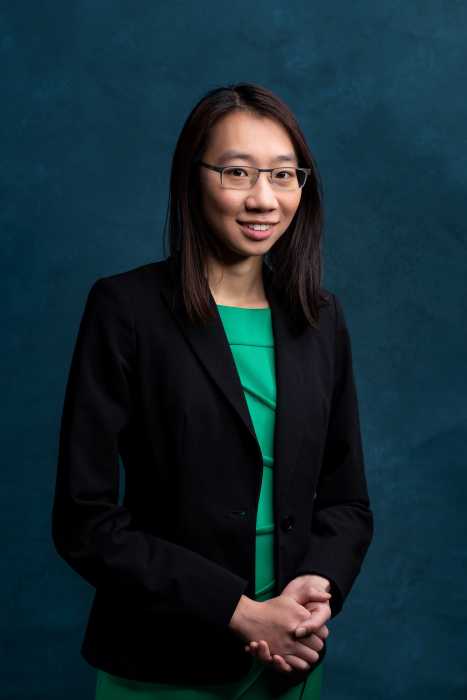
Mon Yuck Yu
Director of Policy, Office of the Brooklyn Borough President Antonio Reynoso

Mon Yuck Yu is director of policy at the office of the Brooklyn Borough President Antonio Reynoso, leading initiatives to combat Brooklyn’s maternal mortality crisis and affecting policy change in mental health, safety, and education. Mon Yuck also co-founded RaisingHealth Partners, where she spearheaded free health, mental health, literacy, public safety and food security programs for immigrant communities. She serves on several boards and advisory councils at Women’s Empowerment Coalition, NYC Health Public Health Corps, and City Limits.
If you could give your younger-self advice, what would it be?
Never let anyone else define what is possible. Because something has never been done before does not mean that it cannot be done. Surround yourself with people who lift you higher, instead of those who try to silence your gifts. You control your choices. Free yourself from what doesn’t give you joy. There is no wrong decision — every decision is an opportunity to grow; every good decision is an opportunity to flourish.
Do you have any event/movie/music suggestions for our readers to check out in celebration of AAPI Heritage Month?
I recommend the film “The Farewell,” which explores tensions between Chinese and Chinese-American identities, depicting a family’s reconciliation with discussing death and illness, a struggle many families, including mine, can relate to. “Free Chol Soo Lee” is also a compelling documentary that highlights a Korean immigrant’s wrongful murder conviction, sparking a pan-Asian justice movement questioning the relationship between race and the carceral state, exposing flaws in our criminal justice system, and inspiring Asian-American activism today.
How has your heritage shaped the person you are today?
Growing up with Chinese immigrant parents instilled in me core values of humility, resilience, and respect. They emphasized leading with humility by continuously learning and supporting others’ growth. In facing life’s obstacles, we nurture a mindset of hope and resilience, drawing from our family’s history of escaping war and enduring loss. We respect our elders for their wisdom and sacrifices, reciprocating their love and caring for them as we would wish to be treated.
What can New York policymakers do to support the AAPI-community in the short-term? In the long-term?
The AAPI community, NY’s fastest-growing ethnic diaspora, faces high poverty rates, safety issues, and language barriers. Policymakers must combat the harmful model minority myth and fill funding gaps for AAPI-serving organizations. Data disaggregation is crucial for equitable resource allocation. We need to invest in education and support for immigrant-run small businesses. Affordable, linguistically-accessible mental health services are also vital amidst rising anti-Asian hate, necessitating funding for community-based groups, workforce scholarships, and expanded loan forgiveness programs.
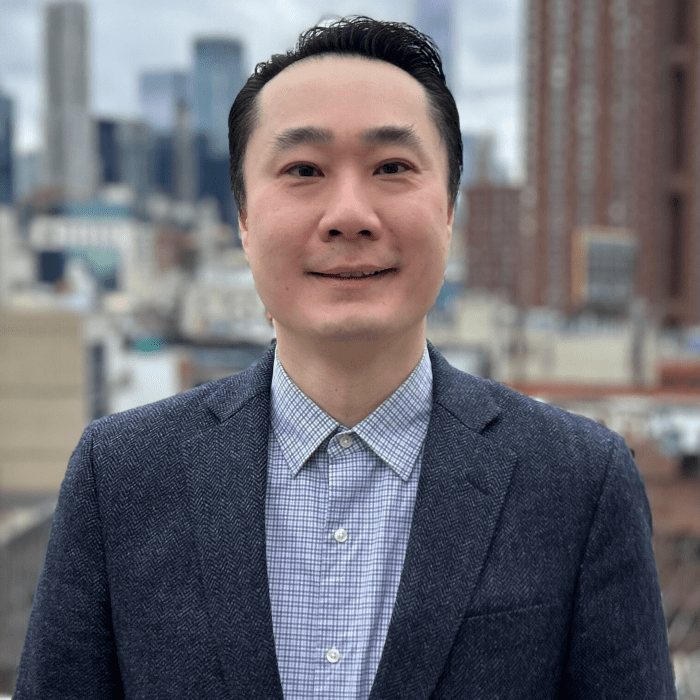
Thomas Yu
Executive Director, Asian Americans for Equality

Thomas Yu leads Asian Americans For Equality (AAFE), a 50-year old community development organization. Through his leadership, AAFE has developed over 1,200 units of affordable housing, provided crucial social services to over 35,000 individuals annually, assisted more than 10,000 small business entrepreneurs with over $70 million of direct capital, and aided 5,000 first time homebuyers in achieving their American dream.
If you could give your younger-self advice, what would it be?
Pace yourself. Community development is a marathon, not a race. Quick victories for our communities are rare. Most sustainable and impactful projects require time, patience, collaboration and persistence.
Do you have any event/movie/music suggestions for our readers to check out in celebration of AAPI Heritage Month?
The films depicting the protest movement in Manhattan’s Chinatown in the 1970s, including Christine Choy’s, “From Spikes to Spindles.”
How has your heritage shaped the person you are today?
As an American by choice, my immigrant heritage reminds me every day that – given the right access and support – all people have the potential to become civically engaged, productive Americans. It is what drew me to community development work and it is what inspires me day-in-and-day-out to help ensure that immigrant families and individuals have the resources they need to thrive and to contribute to their communities, city and country.
What can New York policymakers do to support the AAPI-community in the short-term? In the long-term?
Policymakers can do more to understand the complexity and diversity of the AAPI community demographically, socially and politically – and to avoid relegating our population as a statistical afterthought. Asian Americans are all too familiar with the concept of “otherness.” It is important for policymakers to recognize that the AAPI population represents dozens of cultures and languages and that our communities have many different needs.
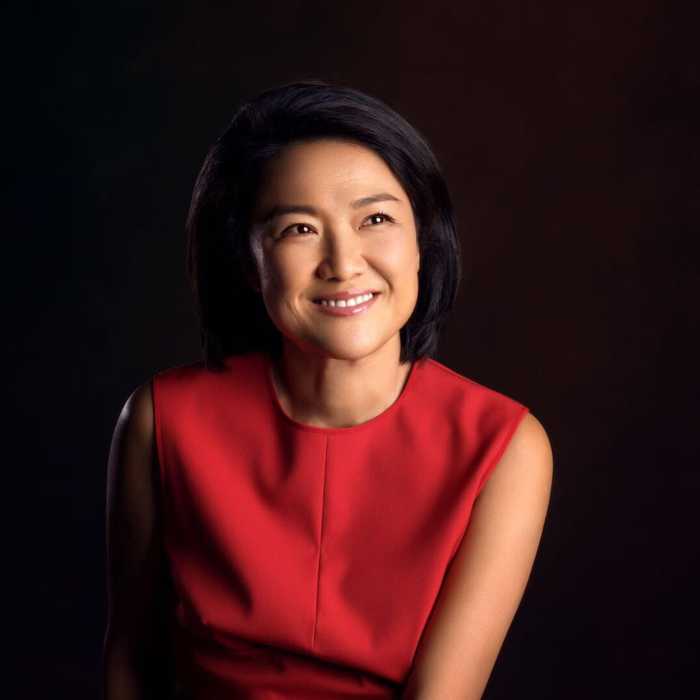
Zhang Xin
Founder, Closer Media

One of the world’s most celebrated female entrepreneurs, Zhang Xin is renowned for infusing business with creativity, beauty, and innovation. As co-founder of China’s most iconic property developer SOHO China, Xin has been widely acclaimed as the “woman who built Beijing”. Now, as founder of New York based film production company and financier Closer Media, Xin is deeply committed to working with global filmmakers and partners to make meaningful stories that bring people closer together.
If you could give your younger-self advice, what would it be?
Be confident! It is amazing what you can achieve when you believe you can make it happen.
Do you have any event/movie/music suggestions for our readers to check out in celebration of AAPI Heritage Month?
I am proud to recommend “The Monk and the Gun”, a film I co-produced that was shortlisted for the Oscars. Directed by Oscar-nominated director Pawo Dorji, the film tells the story of Bhutan’s transition from monarchy to democracy through the eyes of one of the country’s most remote villages. Many Americans are not familiar with Bhutan. This beautiful film provides a window into Bhutan at a special moment in the country’s recent history.
How has your heritage shaped the person you are today?
I did my university studies in England and started my career on Wall Street in the 1990s. Back then, there were not many Asian executives or entrepreneurs. I went back to China to become an entrepreneur, and I have always focused on projects that bring together the best of global talents. Now as a NYC-based film producer, I am most interested in telling stories that show how we are more alike than we are different.
What can New York policymakers do to support the AAPI-community in the short-term? In the long-term?
Celebrating AAPI Heritage Month is a great start to supporting the AAPI community. The first step is recognizing the incredible accomplishments and contributions of diverse AAPI people in different fields.
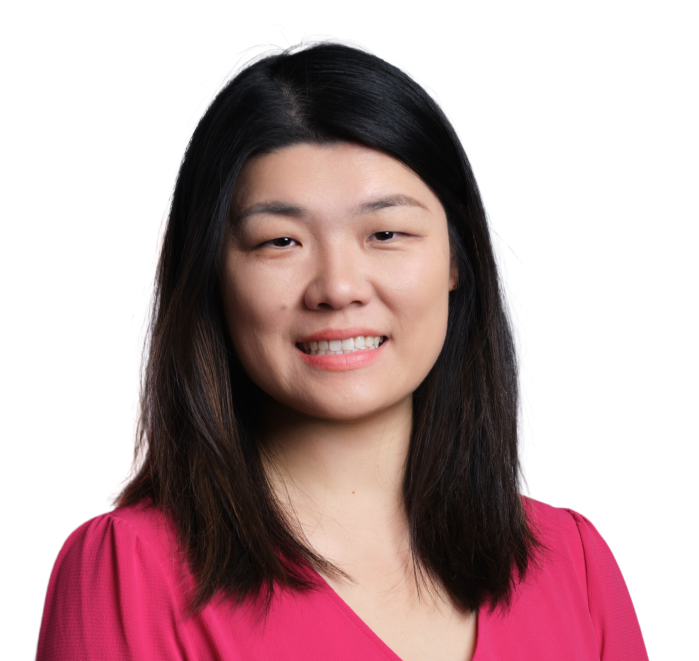
Susan Zhuang
City Council Member, New York City Council

Council Member Susan Zhuang immigrated to New York from Baipu at 20-years-old with the hope of getting a quality American college education. Getting her start in politics only a few years after college, the Council Member volunteered to help seniors file their taxes, eventually serving as Assembly Member Colton’s chief of staff for a decade. Council Member Zhuang lives in Bensonhurst with her husband and two daughters.
If you could give your younger-self advice, what would it be?
If I could tell my younger self anything – it would be that you can do anything you set your heart to. It is important to remind yourself what you are capable of even when others refuse to see your potential. Remember, the people who care about you will always support you. The people who don’t like you will always try to put you down.
Do you have any event/movie/music suggestions for our readers to check out in celebration of AAPI Heritage Month?
- AAPI Cultural Heritage parade on Sunday, May 19. The festivities will take place along Sixth Avenue, from 44th to 55th streets in Manhattan.
- 11:30 A.M.-12:30 A.M. (7802 Bay Pkwy, Brooklyn, NY 11214) May 22, There will be an Asian and Jewish Heritage month celebration
How has your heritage shaped the person you are today?
My district is home to one of the largest Chinese-American populations in not just the city but the whole state. I am deeply proud to be the first Chinese-American representing Brooklyn in the City Council. My heritage taught me the values of family, public safety, the importance of education, and sharing our culture with others. My heritage guides me both in the policies I design and the change I advocate for on a daily basis.
What can New York policymakers do to support the AAPI-community in the short-term? In the long-term?
As a Chinese-American immigrant serving in City Council, I am determined to support the AAPI community by expanding support services for immigrants, strengthening our ESL programs, working to end anti-Asian hate and all hate in our city, and doing whatever possible to ensure that no matter what language you speak – you are able to get the support you need. We need to build services that help all Asian-American and Pacific Islanders.


